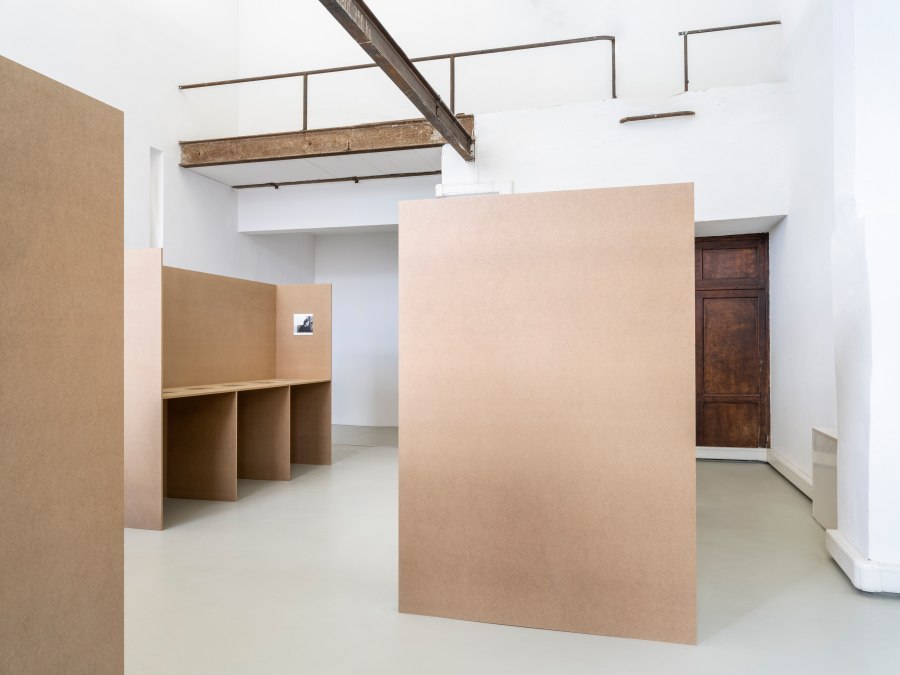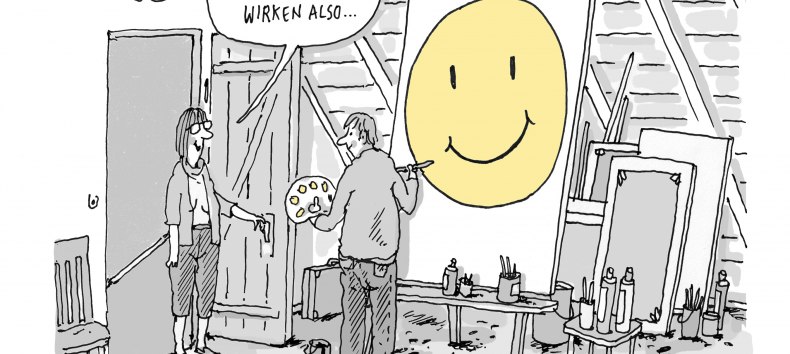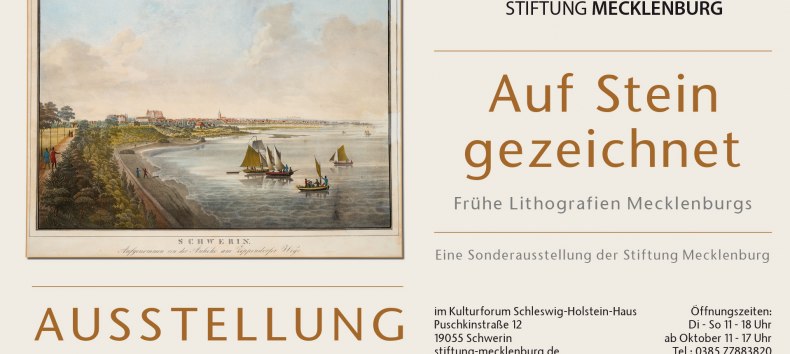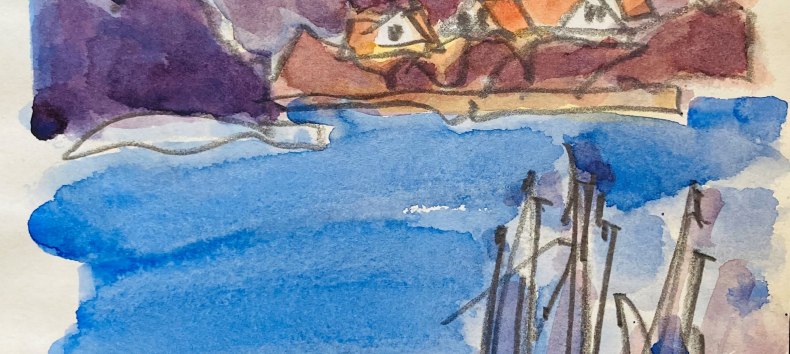First institutional solo exhibition of the artist Cora Pongracz in Germany
EN
On August 29, 2025, the Kunstverein in Schwerin will open the exhibition "8 extended portraits", which focuses on the work of Austrian photographer Cora Pongracz (1943-2003) and opens a dialog about female identity and equality.
Due to her mother's Jewish ancestry, the Pongracz family, originally from Vienna, had to flee into exile in Argentina and were only able to return to Europe, more specifically Germany, in 1956. There, Cora Pongracz attended a photography school near Frankfurt and then studied at the Academy of Fine Arts in Munich. At the end of the 1960s, she returned to Vienna, where she quickly came into contact with the local art scene, particularly the Viennese avant-garde. Today, Cora Pongracz is considered one of the most important documentarists of Viennese Actionism. However, her own artistic work was long forgotten. Accordingly, the exhibition at the Kunstverein in Schwerin is the first institutional presentation of her practice in Germany and aims to examine the importance and potential of her work for and with current discourses.
Apart from her documentary commissions, Cora Pongracz's own photographic practice stands for a medium-specific detachment from fixed patterns of interpretation and depiction. This attitude can be understood as a reaction to the social upheavals of her time. Pongracz's (post-war) generation was brought up in a school and education system in which the guidance of young people by authorities was taken for granted - and it was precisely this generation that rebelled against these authorities and their value systems in the late 1960s.
A frequent feature of her photographs is a preference for transitory moments. Instead of capturing striking poses, Pongracz preferred moments of transition. In this way, Pongracz developed a photographic formal language that took up and translated gender-political issues and later - influenced by her own mental health - discourses of inclusion. Her approach can be described as a media-reflexive experiment in which the conditions of photographic representation and conceptual mediation are examined in terms of their limits and applicability. All of her works are based on a fundamental doubt about the institutional authority that a person can be "clearly" represented - be it institutionally or photographically.
For the exhibition in Schwerin, one of the most important groups of works, the "8 extended portraits" (1974), is being presented in its entirety for the first time. Within each of the eight portraits, the conceptual series combines two shots of the selected women with five associated motifs. These were specified by the portrait subjects themselves by naming their favorite places, partners, children or objects and activities of individual significance to the photographer. The associative extensions thus originated from the people portrayed themselves, albeit filtered through the photographer's gaze and apparatus. The eight women represented are not mentioned by name. However, as well-known figures in the Viennese art scene at the time, they are easily identifiable (for example Trude Ernst-Rindt, Lore Kuntner, Mira Csarmann and Christiane Dertnig).
In order to reflect Pongracz's approach within today's social discourses, a number of contemporary artists are invited to react to and relate to Pongracz's work through their own photographic practices as well as through texts, performances and other forms of critical interventions. These include artists such as Seiichi Furuya, Marietta Mavrokordatou, Paul Niedermayer and others.
EN
On August 29, 2025, the Kunstverein in Schwerin will open the exhibition "8 erweiterte portraits," which focuses on the work of Austrian photographer Cora Pongracz (1943-2003) and, through the medium of photography, will open up a dialog on identity and contemporary politics of representation.
Due to her mother's Jewish heritage, the family-originally from Vienna-was forced into exile in Argentina, only able to return to Europe, specifically Germany, in 1956. There, Cora Pongracz attended a photography school near Frankfurt/Main and later studied at the Academy of Fine Arts in Munich. At the end of the 1960s, she returned to Vienna, where she quickly became involved with the local art scene, particularly the Viennese avant-garde. Today, Cora Pongracz is considered one of the most important documentarians of the Viennese Actionists. However, her own artistic practice was long overlooked. The exhibition at Kunstverein in Schwerin is thus the first institutional presentation of her practice in Germany and aims to explore the significance and potential of her work in relation to current discourses.
Beyond her documentary commissions, Cora Pongracz's photographic practice stands for a medium-specific emancipation from fixed patterns of interpretation and representation-a stance best understood as a response to the social upheavals of her time. The post-war generation to which Pongracz belonged was shaped by an educational system where the control of youth by authority figures was taken for granted. It was precisely this generation that rose up in the late 1960s against those authorities and their value systems. Pongracz experienced this upheaval in Munich and London, where she came into contact with various rebellious (youth) movements. Although not actively involved herself, testimonies from contemporaries show how profoundly these years influenced her.
A common feature of her work is a preference for transitional moments. Rather than capturing striking poses, Pongracz favored moments of transition and movement. Through this, she developed a photographic language that engaged with gender-political issues and, later-shaped by her own struggles with mental health-with discourses of inclusion. Her approach can be seen as a media-reflexive experiment that probes the limits and usefulness of photographic representation and conceptual mediation. Underpinning all her work is a fundamental skepticism toward institutional authority's ability to represent a person "unambiguously"-whether institutionally or photographically.
For the exhibition in Schwerin, one of Pongracz's most important bodies of work-"8 erweiterte portraits" [8 extended portraits] (1974)-will be presented in its entirety for the first time. This conceptual series combines, within eight portraits, two images of each selected woman with five associated motifs. These were chosen by the portrayed individuals themselves by naming favorite places, partners, children, or personally meaningful objects and activities. While these associative additions stem from the subjects themselves, they are filtered through the gaze and apparatus of the photographer. The eight women are not named but are recognizable figures from Vienna's art scene at the time (e.g., Trude Ernst-Rindt, Lore Kuntner, Mira Csarmann, or Christiane Dertnig).
To reflect on Pongracz's approach within today's societal discourses, a curated selection of contemporary artists will be invited to respond to her work through their own photographic practices, as well as through texts, performances, and other forms of critical intervention. This includes artists such as Seiichi Furuya, Marietta Mavrokordatou, Paul Niedermayer, and others.
Curated by / Curated by:
Hendrike Nagel
Assistant Curator / Asisstenzkuratorin:
Luisa Kleemann
Eröffnung / Opening: 29.08.2025, 19:00
mit / with Dinner*, 20:30
Begrüßung / Welcome: Vorstand / Board
Einführung / Introduction: Hendrike Nagel (Direktorin / Director)
*Please rsvp by email or phone, preferably at least one week prior to the event.
Im Dialog mit / In dialog with:
Seiichi Furuya
21.09.2025 - 26.10.2025
Eröffnung / Opening: 20.09.2025, 18:00
Marietta Mavrokordatou
02.11.2025 - 30.11.2025
Opening: 01.11.2025, 18:00
Paul Niedermayer
07.12.2025 - 11.01.2026
Opening: 06.12.2025, 18:00
Further dates will be announced in the coming weeks. / Further dates will be announced in the coming weeks.




